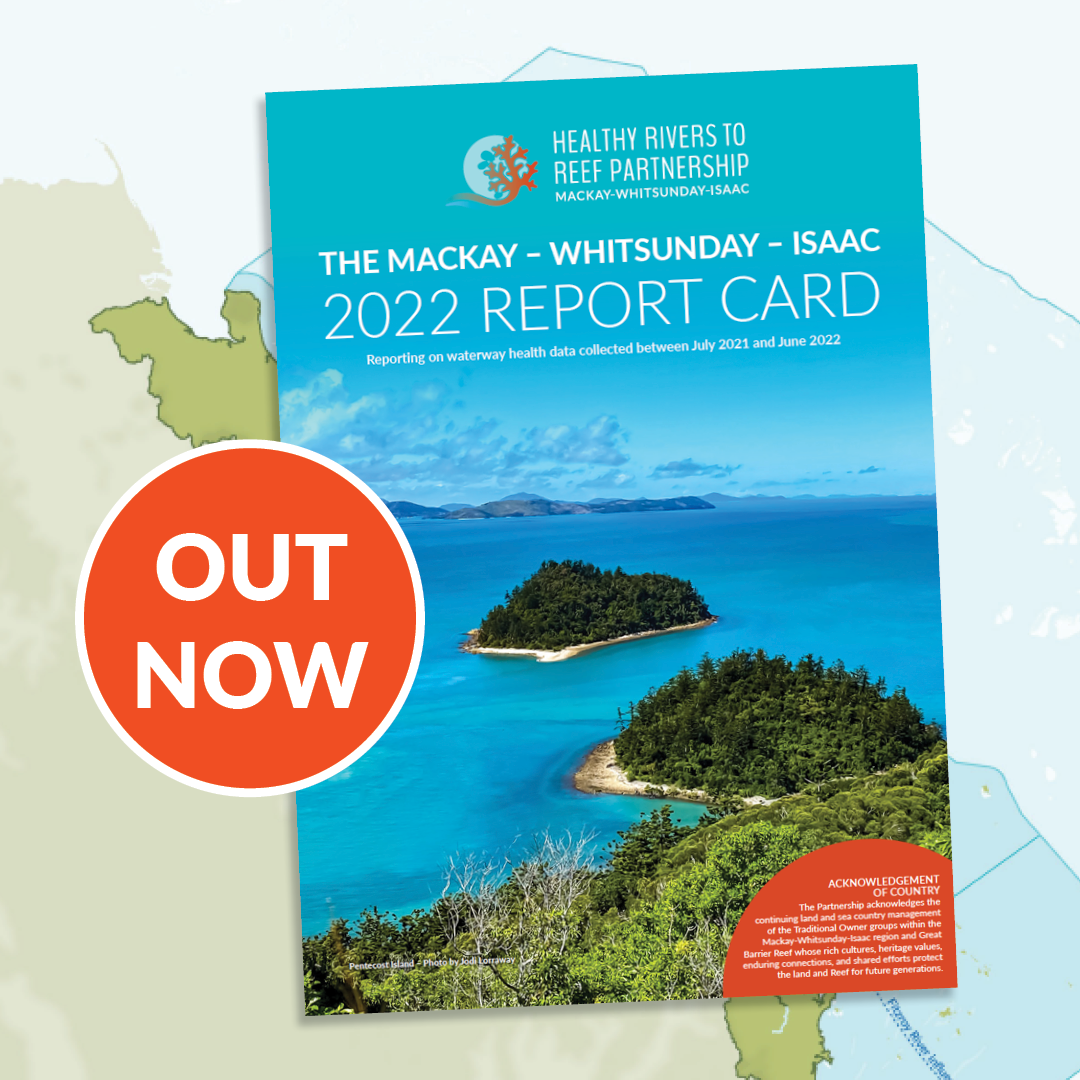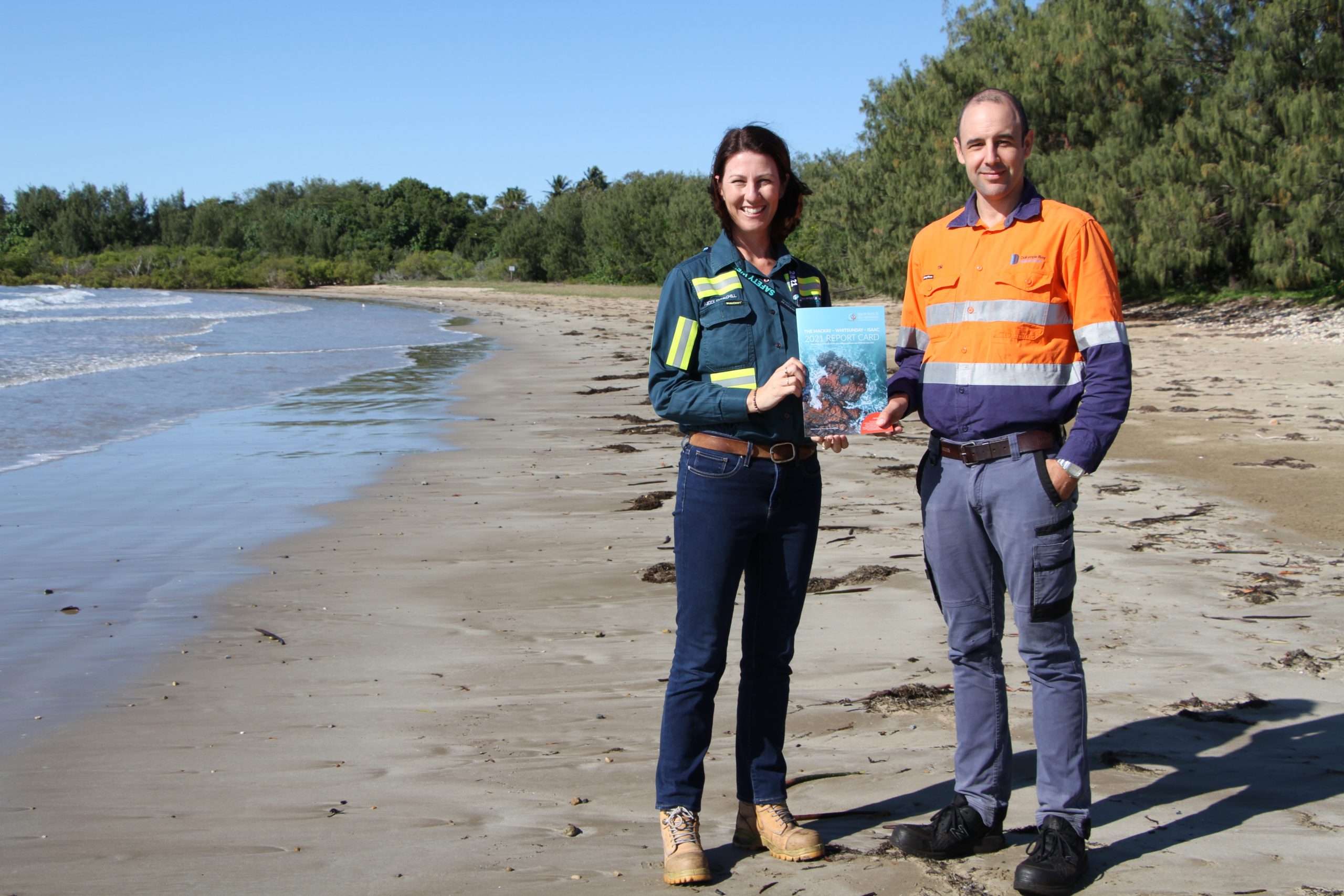Consistent Scores and a Focus on Litter in latest Report Card results
Today we released the 2022 Waterway Health Report Card, assessing the condition of freshwater, estuary, and marine environments based on data from the 2021-22 reporting period.
The report card shows a consistent range of scores from B to D across the region, with only two grade changes from the previous reporting year.
However, Chair of the Partnership, Charlie Morgan, said the results highlighted where more information was needed; where achievements could be celebrated; and where more work could be done.
“From rivers to reef – when it comes to waterway health, it is critical that we have regular data and information to make informed decisions and good choices as a community,” Ms Morgan said.

“What this year’s information shows us is that there is an opportunity to fill some key data gaps – for example, by focusing on fish.
“There are currently no monitoring programs for estuarine fish in our region, and we know how much fish mean to those of us living in the Mackay, Whitsunday, and Isaac regions! To have more active monitoring would be valuable to our communities.”
The Mackay Whitsunday and Isaac regions are communities rich in natural beauty and reliant on our waterways, so the more we focus on this information to plan for the future, the better.
She said one good news story that had emerged was seagrass in the Southern Inshore Marine Zone, a known dugong habitat.
“Seagrass improved in this zone from Moderate to Good, despite the overall zone grade remaining the same,” she said.
“We know this area is an important one for dugong feeding trails and seagrass meadows, so this is a significant and positive result.
“We would like to thank Daly Bay, one of our founding Partners, for investing in data collection in the Southern Inshore Marine Zone, which previously was a missing piece of the waterway health puzzle.”

Ms Morgan said it was important to note that recent monitoring of litter hot spots in Airlie Beach had identified the ‘Top 10’ culprits for rubbish flowing to the Great Barrier Reef.
“We monitored litter with our partner, Tangaroa Blue, and the number one litter item found heading into our waterways was cigarette butts,” she said.
Many people do not realise that cigarette filters are made out of plastic fibres. Flicked onto roads and beaches, or dropped onto streets, many of the lightweight butts end up in bodies of water, swept there by rainfall and storm water systems.
“They have a persistent and potentially harmful effect on marine environments. The Partnership is thrilled to be working with venues to help local residents ‘ditch the flick’ and provide dedicated butt bins,” Ms Morgan said.
Ms Morgan added that, importantly, the release of the latest Report Card provided a chance to reflect on waterway health and its value.
“The Mackay Whitsunday and Isaac regions are communities rich in natural beauty and reliant on our waterways, so the more we focus on this information to plan for the future, the better,” she said.
Access the 2022 Report Card or contact us to request physical copies for your school, business or organisation.



